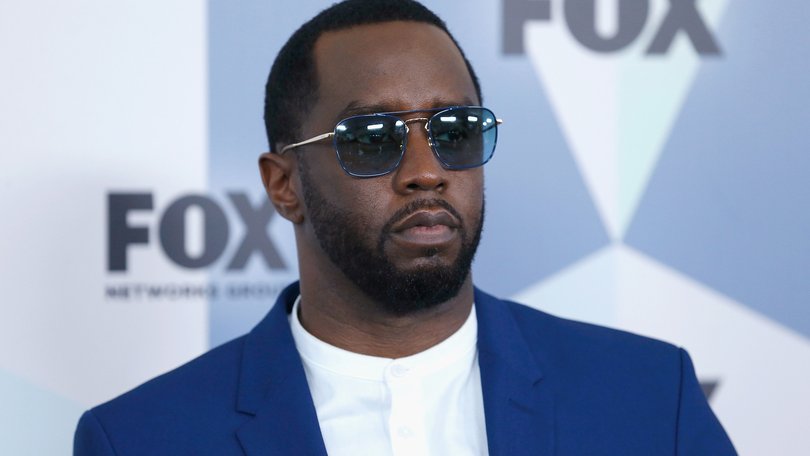THE WASHINGTON POST: The music industry’s verdict on Diddy’s comeback after release from prison
After being acquitted of the most serious charges in his federal trial, insiders have shared predictions for Sean ‘Diddy Combs’ future.

Sean “Diddy” Combs may have celebrated emotionally after being acquitted of the most serious charges in his federal trial, but music industry figures did not see this victory as a first step to reclaiming his career.
In fact, they see little to no path for him to return to the hip-hop empire he ruled so successfully for decades.
Combs was convicted on two charges of transportation to engage in prostitution in cases involving two former girlfriends. Though he was acquitted of the more serious charges of sex trafficking and racketeering, the depth of testimony that emerged during the eight-week trial will make Combs virtually untouchable as a marketable entity, they say.
Sign up to The Nightly's newsletters.
Get the first look at the digital newspaper, curated daily stories and breaking headlines delivered to your inbox.
By continuing you agree to our Terms and Privacy Policy.“It’s not just somebody found guilty of bank fraud,” said Jeff Jampol, whose JAM Inc. manages the works and images of classic artists, including the Doors, Janis Joplin and Juan Gabriel. “It was a crime against women. It was that horrible video of him dragging Cassie down the hall by her hair. That’s a heavy load to come back from,” he said, referring to video involving singer Casandra “Cassie” Ventura.
Rey Roldan, a music publicist who once represented Britney Spears and R Kelly at Jive Records in the 1990s, likened Combs’s fall to “an overthrow of the patriarchy.”
“That fact that he was exerting his influence and his power, over women especially, that becomes a rallying cry,” he said.
Roldan noted three entertainers who faced scandals far less damning than Combs, none convicted of crimes. Ryan Adams, the singer-songwriter accused of taking advantage of younger artists and sexting with a teenager, has resumed his career with a fraction of his former audience buying tickets to shows. Ellen DeGeneres has not yet recovered from the reports of her mistreating workers and creating a toxic workplace that prompted her to end her long-running talk show.
“Even somebody like James Corden, who was accused of being rude to waiters,” took a reputational blow, Roldan says.
Jim DeRogatis - whose reporting in the Chicago Sun-Times on sexual-abuse allegations against R Kelly formed the basis for the case that got the R&B superstar sentenced to 30 years in prison - now teaches college-age students and notices they are far less willing to forgive those whose views they disagree with. That includes once-beloved Harry Potter author JK Rowling, whose critical comments on transgender people have created controversy.
Another barrier for Combs: He’s actually better known now for being a mogul and advertising icon than a musician or producer. He hasn’t had a chart-topping album since the George W. Bush era, and his most recent record, “The Love Album: Off The Grid,” never cracked the Top 10.
“Look, his career over the last 15, 20 years was over except through branding,” DeRogatis says. “Both Diddy and Kelly aged out of the core audience they had when they were at their musical peaks, and my students have no problem whatsoever with never listening to Kelly and walking out of the room when he’s playing. And I imagine it’ll be the same with Diddy.”
The trial damaged Combs in other ways. A prominent record executive, who spoke on the condition of anonymity to preserve industry relationships, said the first person he thinks of when Combs is referenced is Harvey Weinstein, the disgraced and convicted former film mogul. He also thinks of rapper Ye, formerly Kanye West, who has also not found anyone willing to work with him after public scandal.
“He’s going to have a very tough time because he still has civil charges up the wazoo that harken back to the MeToo era (of) rampant sexual harassment and sexual abuse scandals,” the executive said. “There are no circumstances under which I’d work with him again.”
But one music executive believes there is an important difference between the convicted Combs and the work he produced.
Merck Mercuriadis, who has specialized in acquiring and managing song rights, was horrified by what he saw during the trial. But he thinks that many of Combs’s songs, with which listeners formed deep connections, will still resonate.
“Diddy consumption is at an all-time high in the streaming era, which is the perverse nature of people,” says Mercuriadis, founder of Hipgnosis Songs. “There is no way back for Diddy as an artist or a public person. But these songs, whether with Biggie or Faith Hill, they have a life of their own.”
© 2025 , The Washington Post
